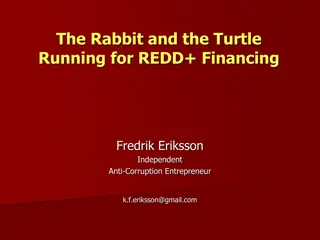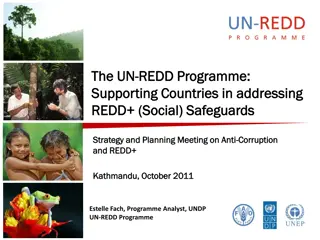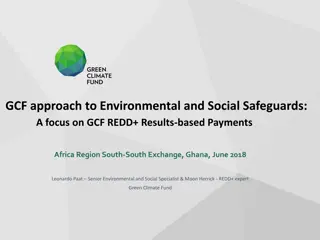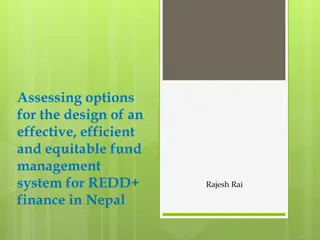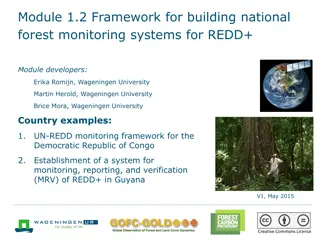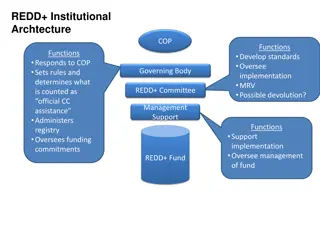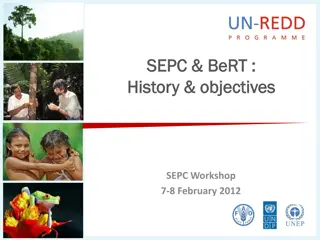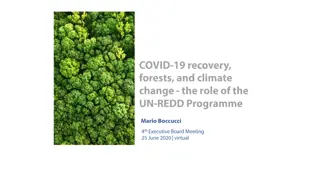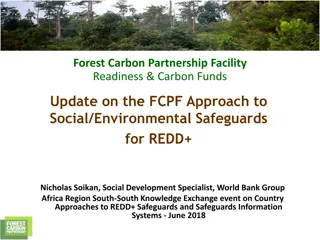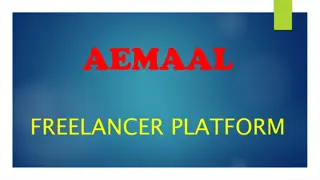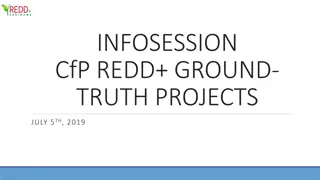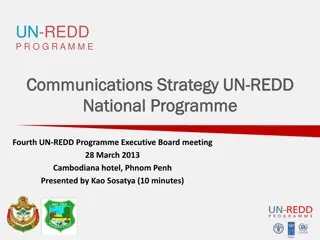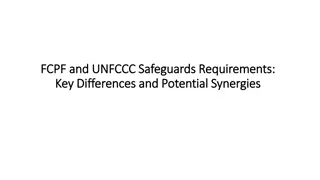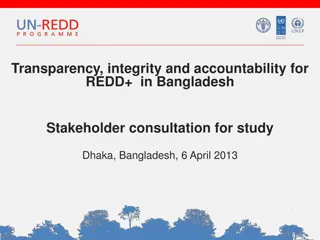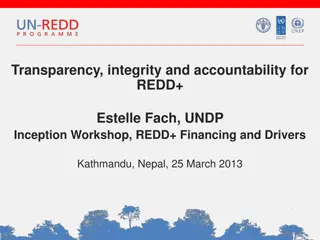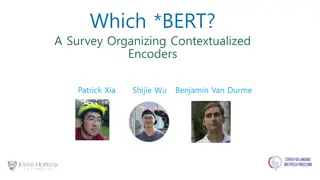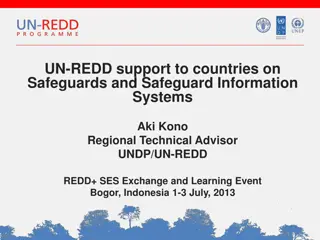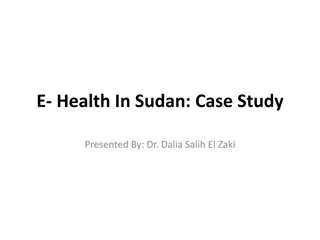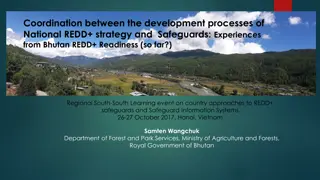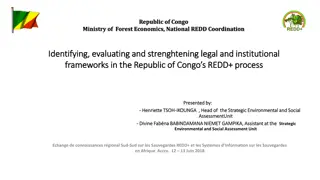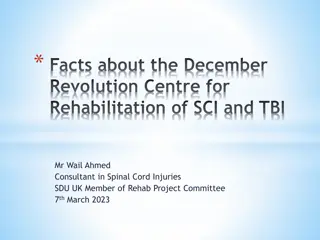Feedback on UN-REDD Programme's SEPC and BeRT in Sudan
"Feedback on the implementation of the UN-REDD Programme's Social and Environmental Principles and Criteria (SEPC) and the Benefit and Risks Tool (BeRT) in Sudan. The workshop aimed to identify the benefits of the SEPC tool for designing the Sudan National REDD programme, explore its usefulness on the ground, gather feedback from local communities, and assess its suitability within the Sudanese context. Field expeditions and methodologies tested the tool's effectiveness in rehabilitation projects like the Nabag Forest Reserve, showing positive outcomes such as community stability and increased income."
Download Presentation

Please find below an Image/Link to download the presentation.
The content on the website is provided AS IS for your information and personal use only. It may not be sold, licensed, or shared on other websites without obtaining consent from the author.If you encounter any issues during the download, it is possible that the publisher has removed the file from their server.
You are allowed to download the files provided on this website for personal or commercial use, subject to the condition that they are used lawfully. All files are the property of their respective owners.
The content on the website is provided AS IS for your information and personal use only. It may not be sold, licensed, or shared on other websites without obtaining consent from the author.
E N D
Presentation Transcript
FNC Sudan s feedback on UN-REDD Programme s Social and Environmental Principles and Criteria (SEPC)- A Benefit and Risks Tool (BeRT)
Sudan Testing SEPC Tool A two-day workshop, including: 8 participants from FNC (three from HQ and others from eastern and western Sudan); 1 from NGO; and 1 from UNEP as technical support and facilitator; and Six-day field work expedition within Western Sudan.
The main objectives of SEPC workshop: 1. To identify the SPEC tool s benefits for designing The Sudan National REDD programme; 2. To explore the useful of SEPC tool on the ground, in accordance with the context in the Sudan context and its utility in designing the REDD+ national programme; 3. To combine and receive SEPC feedback from the ground (indigenous people, forest dependants and local communities; and 4.To comment on the suitability of tool within Sudan. Workshop programme: 1st Day (10 Jan.2012) 9:00 12:00 1- Brainstorming (Sudan National program for REDD plus) Break 12:30 2:30 3:00 0 4:00 Group 1 Discussion and comments Principle 1,2 All the group 2nd Day (11 Jan. 2012) 9:00 - 11 Break 12:00 2:00 2:00 3:00 Group 2 Principle 3, 6, 7 Group 3 Discussion and comments Principle 4,5
Rehabilitation of Nabag Forest by local communities(Activities similar to REDD+) Location: South Kordofan State, West Sudan (gum arabic belt) Area: 4000 ha Objectives: Rehabilitation of degraded forest for the protection, conservation, production and sustainable management of Nabag forest for the purpose of poverty reduction and environmental conservation Rehabilitation started 2004 through agroforestry farming system 500 families out of 13 villages were involved (4000 persons 35% are women) Families selection based on: Landless people, poor, Gender
Methodologies used to test the Tool Questionnaire Meetings Group Discussion Main issues tested Socio economics aspect Environmental aspects Future Participatory Forest Management Sustainability of activities in the future
Outcomes Stability of the community around the forest (during the rainy season for agroforestry and during drought season for gum production Increase in income by 145% Increase in agricultural crops production by 50% compared with area outside the forest Reduction in fuelwood consumption by 30% High awareness about role of forest High degree of willingness to contribute in protection, conservation and management of the forest Activities found to be sustainable(continuation of income generated from forest) Revenue can be calculated from Crop production Gum production Seeds production Fodder production Carbon sequestration and storage (rotation of Acacia senegal=23 years) Wood production at the end of the rotation
Activities implemented Awareness (Agroforestry, tree planting, etc) Community organization setup: Gum Arabic Producers GAPCs) and village committees(selected by GAPCs) Agroforestry Forest protection Gum production Energy program (using alternatives and improved stoves ) raising and training Cooperatives (25
General Comment The SEPC tool is very useful to be used as a safeguard, implementing of REDD+ activities, national frame work and help in monitoring system, but it should consider the variety of contexts within developing countries: Different circumstances, environments and interests; Ensure sustainability as major factor ; and High need to nationalize the tools accordingly to specific need based country. There is no criterion to assess the sustainability of the REDD+ issues and activities in the future
Detailed comments Principle Criterion Criterion 1 Comments Principle 1: Apply norms of democratic, governance, including those reflected in national commitments and agreements Criterion 2 Integration of indigenous and national systems and legal pluralism. Criterion 3 Ensure equal and easy accessibility to information related to REDD+, with consideration to illiterate and remote people in the rural areas. Criterion 4 This is applicable in Sudan community forests. Criterion 5 In the part of enforcement of law, it could be better to add enforcement of plural and combatable laws (Indigenous and national laws). Criterion 6 Integration of indigenous and national systems. Criterion 7 Criterion 8 Principle 2: Respect and Protect stakeholders rights, including human rights, statutory and customary rights, and collective rights Adding gender mainstreaming in all REDD+ activities . Criterion 9 Information accessibility should consider illiterate people by using radio and other media. Criterion 10 Ensure there is no compulsory resettlement as a result of REDD+. Criterion 11
Principle Criterion Comments Criterion 12 Principle 3: Promote and enhance forests contribution to sustainable livelihoods Criterion 13 High consideration to win-win approach, socio-economic development and REDD+ should meet the stakeholder s needs during 15 years as minimum. Criterion 14 Principle 4: Contribute to low-carbon, climate-resilient sustainable development policy, consistent with national development strategies, national forest programmes and commitments under international conventions and agreements. Community based adaptation and mitigation/ Indigenous knowledge should be included. Criterion 15 REDD+ reversal impact drivers should include the drivers in short term (4 years); medium term (7) and long term (15). Criterion 16 Criterion 17
Comments Principle Criterion Criterion 18 Principle 5: Protect natural forest from degradation and/or conversion to other land uses, including plantation forest Each country's needs should be considered as they pertain to afforestation as means of livelihood, such as in South Sudan and Congo, the top priority is to meet the people basic needs. The focus should be how to meet the REDD+ activates and local people's needs, though promoting new sustainable livelihoods, intensive for social development and reducing forest degradation (not to be changed to other land use , extraction of fuel for local people is a part of the natural ecosystem , moreover extraction of some of deadwood and grasses enhance natural regeneration and reduce the fire risk). Criterion 19 Suggestion: instead of using only infrastructure development, it could be better using physical developments. Criterion 20 Criterion 21 Principle 6: Maintain and enhance multiple functions of forest to deliver benefits including biodiversity conservation and ecosystem services Co-benefits Criterion 22 Add: sustainability managed for long-term.
Principle Criterion Comments Criterion 23 Criterion 24 Criterion 25 Principle 7: Minimise adverse impacts (direct and indirect) on non- forest ecosystem services and biodiversity Applying REDD+ in the land that has been depredated by mechanized agricultural schemes could recover and rehabilitate quickly the land.
SEPC BeRT Sudan Group Name Gender Organization Dr. Abdalla Gaafar M Chief of TS, FNC Dr. Mey Ahmed F UNEP-Climate Change and Peace Building Focal Point Dr. Sayeda Khalil F Sudan REDD+ Desk, FNC Fatima Mohamed F Kordofan State Forests Mona Mohamed F Kordofan TS, FNC Mustafa Yousif M Central, TS, FNC Taghreed Ali F Gadaref State Forest Mohamed Ahmed M Central, TS, FNC Sawsan Ali F NGO, Sudanese Social Forest Society


